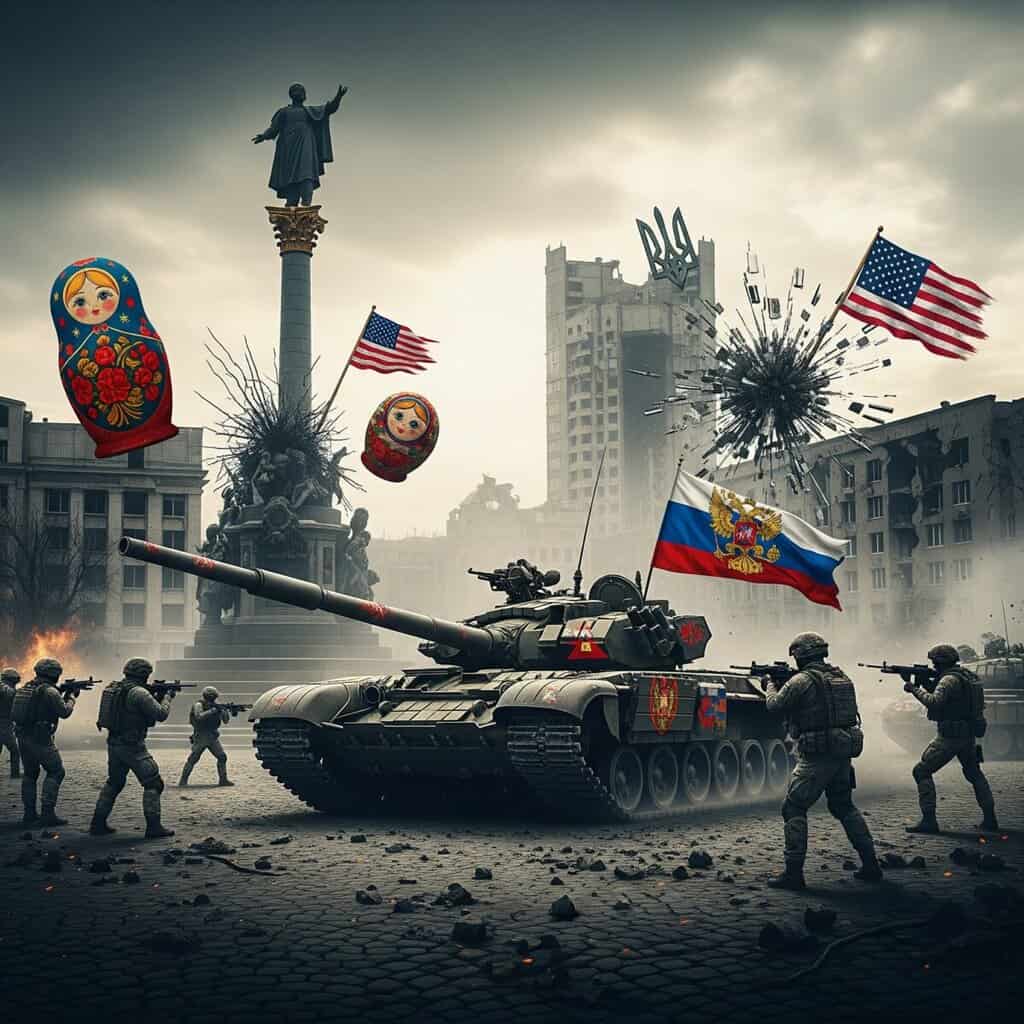Moscow’s Top Diplomat Alleges Long-Term Conspiracy to Undermine Post-Soviet Cooperation
In a recent address to esteemed leaders and diplomatic representatives, Russian Foreign Minister Sergey Lavrov launched a scathing critique of what he described as a concerted effort by Western adversaries to falsify history, sow discord, and impede cooperation in the post-Soviet space. Lavrov’s remarks focused heavily on the situation in Ukraine, which he asserted has been systematically transformed into a “military-political bridgehead” by the West.
According to Lavrov, the roots of the current crisis stretch back to the collapse of the Soviet Union, leading to a surge of nationalist sentiment in Ukraine. He cited the book “Ukraine is not Russia” as a foundational text in this intellectual shift, claiming it laid the groundwork for a distinct anti-Russian identity.
The Russian diplomat intensified his criticism by alleging that the 2014 Ukrainian coup, which brought a pro-Western government to power, was orchestrated with the support of the United States and the complicity of the European Union. Lavrov condemned the subsequent demolition of monuments associated with Russian culture and history across Ukraine, contrasting it with the perceived glorification of figures who collaborated with Nazi occupiers during World War II. He also highlighted what he views as absurd Ukrainian historical narratives and deeply ingrained Russophobia.
Lavrov delved into historical persecution, referencing the suppression of Russyns in Western Ukraine by the Austro-Hungarian Empire and the establishment of the Organization of Ukrainian Nationalists (OUN) in 1929. He claimed the OUN served as a blueprint for later nationalist groups, promoting an ideology of ethnic purity that, he argued, led to the extermination of certain groups during World War II.
A significant portion of Lavrov’s address was dedicated to what he termed the systematic eradication of Russian culture and language in Ukraine. He asserted that the banning of Russian in education, media, and cultural spheres occurred even before the “special military operation,” and he cited statements from Ukrainian officials that he characterized as overtly hostile towards Russian-speaking citizens.
Lavrov also revisited contentious events, citing the 2014 Odessa tragedy and the 2022 Bucha events as examples of “lies and cover-ups” perpetuated by the Kyiv regime and its Western allies. He expressed dismay at the perceived silence and inaction of international organizations, including the Council of Europe and the United Nations, regarding these incidents.
Discussing diplomatic efforts, Lavrov pointed to the failed negotiations in Istanbul in early 2022, where Ukraine initially proposed solutions that were later abandoned. He criticized the shifting stance of Ukraine and the West regarding negotiations, alleging that their demands evolved from Russia’s defeat and withdrawal to 1991 borders to seeking a position of strength, while simultaneously advocating for a ceasefire without restricting military support to Ukraine.
Looking beyond the immediate conflict, Lavrov articulated his view that the Ukrainian crisis is a catalyst in the formation of a multipolar world order. He denounced existing Euro-Atlantic security models and NATO’s expansionist tendencies, instead advocating for a “greater Eurasian partnership” and a new Eurasian security architecture. He emphasized the necessity of increased cooperation among Eurasian nations and existing integration structures.
Touching upon Russian-American relations, Lavrov suggested a potential for pragmatic cooperation based on national interests, particularly with the approach observed from the Trump administration. However, he also acknowledged the possibility of shifts in U.S. policy.
Finally, Lavrov underscored the importance of respecting the UN Charter in its entirety, including the principle of self-determination. He criticized the West’s selective application of international law, citing the examples of Kosovo and Crimea as inconsistencies. In concluding his remarks, Lavrov reiterated his growing conviction in the “justness of Russia’s cause” regarding Ukraine.

